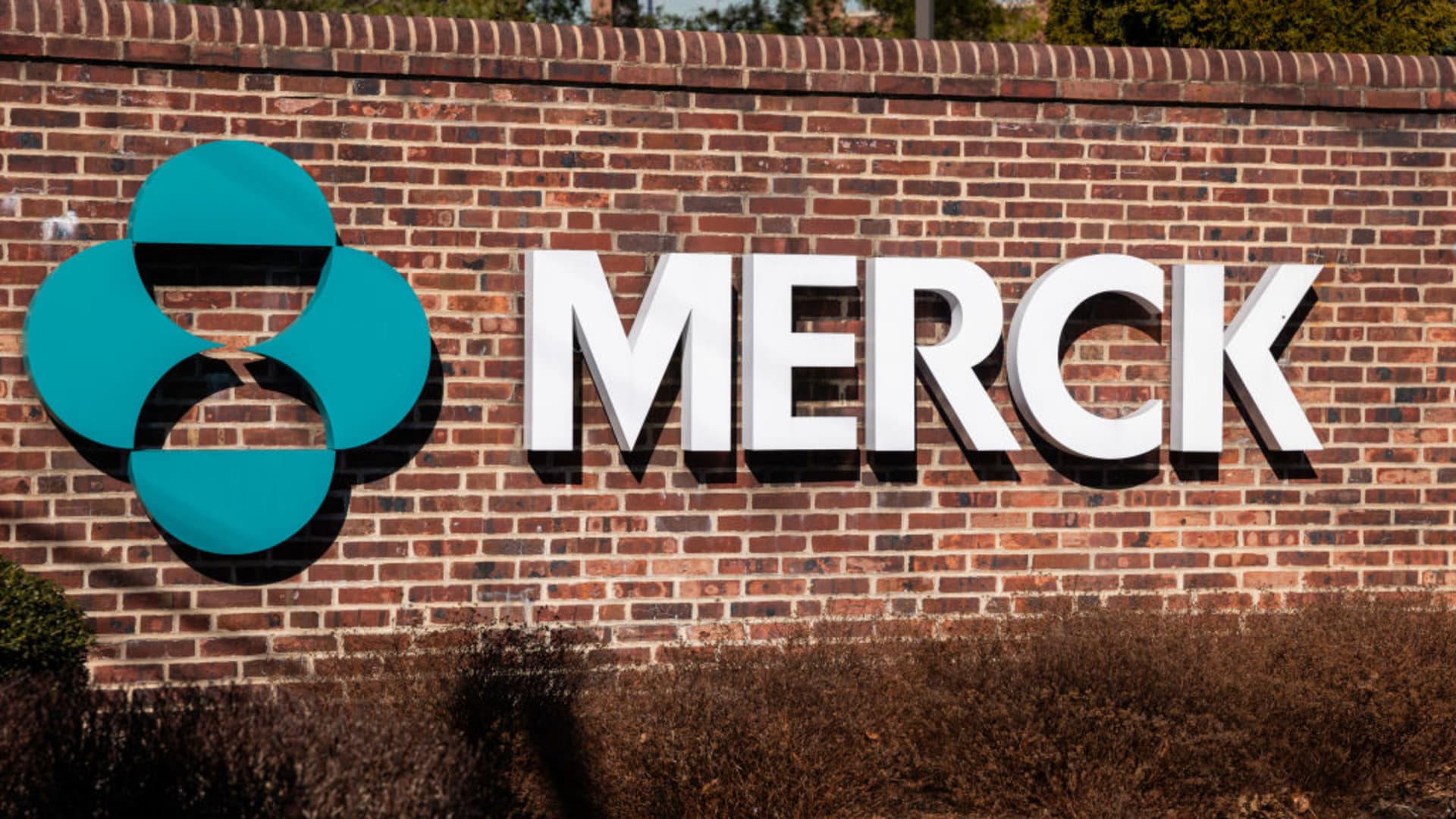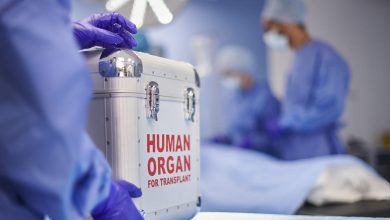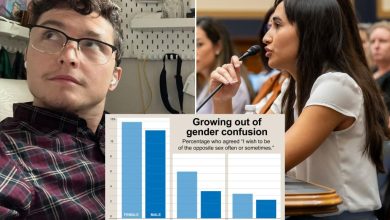
Exterior view of the Merck headquarters entrance on February 5, 2024 in Rahway, New Jersey.
Spencer Platt | Getty Images
Merck The group on Thursday reported first-quarter revenue and adjusted profit above expectations thanks to strong sales of its blockbuster cancer drug Keytruda and its vaccines.
The pharmaceutical giant also raised and lowered its revenue and adjusted profit forecasts for the full year. Merck now expects 2024 sales to be between $63.1 billion and $64.3 billion, up from the previous forecast of $62.7 billion to $64.2 billion.
The company expects full-year adjusted earnings in the range of $8.53 to $8.65 per share, up from its previous forecast of $8.44 to $8.59 per share.
That outlook includes a one-time charge of about 26 cents per share related to Merck’s acquisition of Harpoon Therapeutics in January. The company develops immune-based anticancer drugs. The guidance also includes a negative impact of 30 cents per share due to currency fluctuations.
Here’s what Merck reported for the first quarter compared to what Wall Street expected, based on a survey of analysts by LSEG:
- Earnings per share: $2.07 adjusted versus $1.88 expected
- Revenue: $15.78 billion versus $15.20 billion expected
The company reported net income of $4.76 billion, or $1.87 per share, for the first quarter. That compares to net income of $2.82 billion, or $1.11 per share, in the year-ago period.
Excluding acquisition and restructuring costs, Merck earned $2.07 per share for the first quarter. Adjusted and unadjusted profit for the period includes the charge related to the Harpoon transaction.
Merck generated $15.78 billion in revenue for the quarter, up 9% from the same period last year.
These results come as Merck shows substantial progress in preparing for Keytruda’s patent to expire in 2028. Losing exclusive rights to the drug will likely lead to lower sales, forcing the company to derive revenue elsewhere.
But Merck has a handful of new contracts under its belt and key drug launches that will help it offset those losses. That includes Winrevair, a drug approved last month in the United States to treat a progressive and potentially fatal lung disease. Some analysts estimate that Winrevair’s global sales could reach $5 billion by 2030.
Merck is also cutting costs as part of a new restructuring program announced in February. These efforts are aimed at improving the manufacturing network of its pharmaceutical division and its animal health business.
The company recorded charges of $246 million related to restructuring in the first quarter, which are excluded from its adjusted results.
Pharmaceutical division sales jump
Merck’s pharmaceutical unit reported first-quarter revenue of $14.01 billion, up 10% from the same period last year. This division develops a wide range of drugs for several disease areas, including oncology and infectious diseases.
Merck’s Keytruda immunotherapy, used to treat several types of cancer, was a major contributor to this growth. Keytruda generated revenue of $6.95 billion during the quarter, up 20% from the year-ago period.
Analysts expected $6.71 billion in Keytruda sales, according to FactSet estimates.
Merck also reported increased sales of Gardasil, a vaccine that prevents cancer from HPV, the most common sexually transmitted infection in the United States.
Gardasil generated revenue of $2.25 billion, up 14% from the first quarter of 2023. That matched the $2.24 billion expected by analysts, according to FactSet estimates.
Another vaccine called Vaxneuvance, which prevents patients from contracting pneumococcal disease, also saw strong growth in the quarter. The picture recorded $219 million in sales, up 106% from the previous year.
Meanwhile, Januvia, Merck’s type 2 diabetes treatment, generated revenue of $670 million, down 24% from the same period last year. The company said the decline was primarily due to lower prices for the drug, lower demand in the United States and generic competition in several international markets.
Analysts expected Januvia revenue of $687.3 million, according to FactSet estimates.
Januvia is one of 10 drugs targeted in ongoing Medicare drug pricing negotiations, a policy under the Inflation Reduction Act that aims to make expensive drugs more affordable for seniors .
Sales of Merck’s Covid antiviral pill Lagevrio also fell 11% to $350 million in the quarter. Still, that total beat analysts’ expectations of revenue of $106.4 million, according to FactSet.
Demand for Lagevrio and other Covid products from companies such as Pfizer And Modern has plunged over the past year, as cases and public concern about the virus have declined from pandemic peaks.
Merck’s animal health division, which develops vaccines and drugs for dogs, cats and cattle, reported first-quarter revenue of $1.51 billion. This is only 1% more than the same period a year ago.
In February, Merck announced that it would purchase Elanco Animal Healththe aquatic business for $1.3 billion in cash. The agreement includes Elanco’s entire portfolio of aquatic drugs, vaccines and supplements, as well as two manufacturing plants and a research center.
cnbc





